| Umělec 2011/1 >> Playing at economics. Let’s Burn the King of Carnival! | Просмотр всех номеров | ||||||||||||
|
|||||||||||||
Playing at economics. Let’s Burn the King of Carnival!Umělec 2011/101.01.2011 Ivan Mečl | editorial | en cs de |
|||||||||||||
|
God died years ago. The Germans spent a long time working on that. Today, human rule is biting the dust as well – through international cooperation and exchange. It’s no longer safe in the distant headquarters of the leaders of the world economy, nor in the hideaways of the smallest fish in the pond. Everybody is weighed down with a sense of ruin. The filth is piled up against the gates of the palaces, and the stench is everywhere. There’s no filtering it, no cleaning. Now the fun can finally begin. Let’s drink a toast of crude oil, let’s be crude!
The best way to see how people play at economics is to travel from the port at Dunkirk across all of Europe. The final victory of geometry, planned by distant and never-present architects, has apparently not been included in the calculations. Maybe nobody even counted it in the first place. The European government is not actually governing anything. It merely plays at governing. And who cares that it’s an expensive game? Money can be printed and invented. When the time comes that we’re really going to need it, we’ll just print some or come up with an algorithm. Local governments don’t govern anything. And who cares that they steal? Property has no value. We don’t need it, and so we’re not jealous. There is no such thing as the invisible hand of the market. These talented limbs don’t exist anymore. They are withered and atrophied. All that is left is the penis of the market, fucking us over and occasionally plowing a field, as the body of the market tosses off in its death throes. The region around Dunkirk is the most depressing place in that amazingly developed area that we call Europe. Planners, architects, and property owners in this inhuman zone must live far away – if they didn’t, they would toss their cookies at what is there. Forgotten farmers toy with thoughts of suicide among a maze of motorways, rusting ramps, cracked asphalt parking lots, artificial canals, mountains of spoils, and industro-zonal construction creativity. Looking out over the landscape, people once found the courage to stand up to tyranny; and so the tyrants have defiled the landscape with symbols of limitations. The film version of Cormac McCarthy’s The Road should have taken place near the Dunkirk harbor. You’ll be hard pressed to find a pedestrian anywhere. I once saw a dark figure in a hooded sweatshirt creeping along the highway – maybe the driver of a parked big-rig. Dunkirk is surrounded by architecture of warehouses and grassland businesses. A grassland business is a glass-and-plastic building erected in a field by the highway that tries its best to pretend that, just maybe, an equally stupid town is somewhere nearby. It is basically a box, with only the façade facing the highway showing any kind of design – designed by a personal computer and its creative slave. This kind of architecture comes from the creativity of the testicle of the invisible penis of the market. And these testes come up with plastic, glass, and steel in Bézier curves. A Christmas fruitcake of plastic, glass, and steel, wearing concrete slippers. The only visible part of the invisible body of the market is its brain. The brain of the market can be found in the majority of the human brain that people don’t use. The world economy would collapse if people started to use the rest of their brains. People who think with all of their brain won’t find this collapse to be anything tragic. And then we will need real hands in order to get rid of the remains of the half-dead invisible bodies and their genitalia that control our lives. Our ancestors occasionally torched churches, castles, bogeymen, and ugly things in general. We are going to torch warehouses by the motorway, giant hillsides advertisements, and grassland businesses. Bring some oil – it all burns really slow at first. 12.4.2011 17:16:11 Magdalena Bažantová wrote: can you write something about how they sold me rotten tomatoes at Tesco? 12.4.2011 17:19:54 Ivan Mecl wrote: Sure, that’ll show ‘em and start the revolution It’s going to be Carnival soon. Who wants to be the King of Carnival?
01.01.2011
Рекомендуемые статьи
|
|||||||||||||
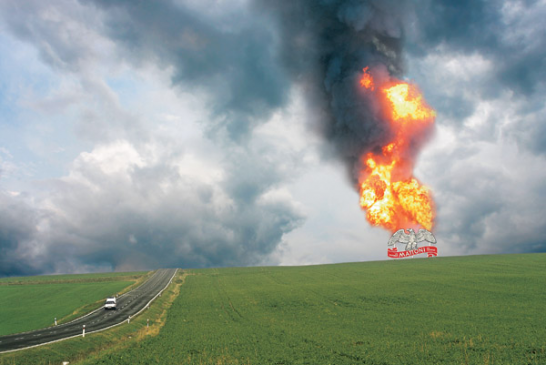
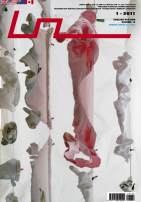

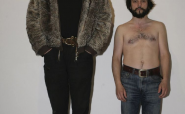
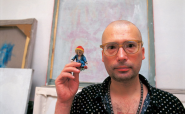
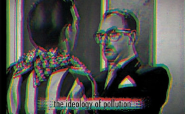
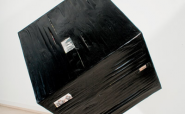
Комментарии
Статья не была прокомментированаДобавить новый комментарий